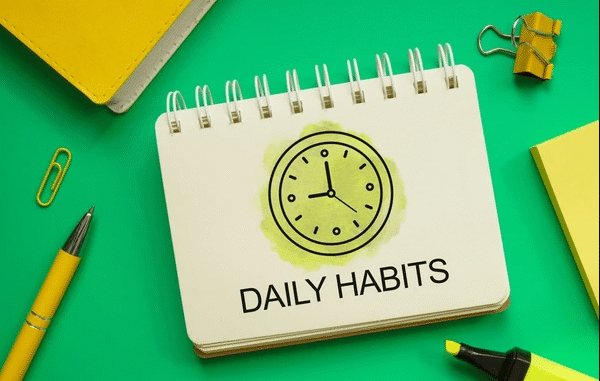
Living a healthier lifestyle doesn’t require a complete overhaul of your life. In 2025, thanks to advancements in technology, wellness research, and public awareness, building a healthier routine has become more achievable than ever. Small, consistent habits can have a powerful impact on your overall well-being—physically, mentally, and emotionally.
Here are the top 10 daily habits that can help you lead a healthier lifestyle in 2025:
1. Start Your Day with Hydration
One of the simplest yet most overlooked habits is drinking water first thing in the morning. After 6–8 hours of sleep, your body becomes dehydrated. Replenishing your fluids not only kickstarts your metabolism but also flushes out toxins and boosts energy levels.
Tip:
- Add a slice of lemon for a dose of vitamin C and improved digestion.
2. Move Your Body Regularly
With remote work and sedentary lifestyles on the rise, incorporating regular movement into your day is critical. You don’t need an intense gym session—just 30 minutes of walking, stretching, or yoga can make a difference.
2025 Fitness Trend:
Wearable tech like AI-powered smartwatches and fitness rings now offer personalized movement reminders and posture tracking to help you stay active throughout the day.
3. Eat a Balanced, Whole-Food Diet
Nutrition is a cornerstone of health. In 2025, the emphasis is on whole foods—fruits, vegetables, whole grains, lean proteins, and healthy fats. Avoid processed foods high in sugar, salt, and trans fats.
Key Nutritional Habits:
- Plan meals ahead to avoid unhealthy last-minute choices.
- Include colorful vegetables in every meal.
- Choose plant-based or lean proteins like legumes, tofu, chicken, or fish.
4. Get Enough Quality Sleep
Sleep affects everything from cognitive function to emotional well-being. Aim for 7–9 hours of uninterrupted, deep sleep every night. Consistent sleep patterns also help regulate your body’s circadian rhythm.
Pro Tip:
Use a smart sleep tracker to monitor your sleep cycles and optimize bedtime routines. Blue light filters on screens and meditation apps can assist in winding down at night.
5. Practice Mindfulness and Meditation
Mental wellness is just as important as physical health. Practicing mindfulness through meditation, deep breathing, or even journaling can reduce stress, anxiety, and depression.
Popular Tools in 2025:
Apps like Calm, Headspace, and AI-guided meditation bots offer customized sessions based on your emotional state, tracked by wearable biosensors.
6. Limit Screen Time and Digital Overload
Excessive screen time can lead to eye strain, disrupted sleep, and mental fatigue. It also affects social relationships and reduces physical activity.
How to Manage It:
- Use the “Digital Wellbeing” features on your phone to set screen time limits.
- Schedule tech-free time, especially during meals and one hour before bedtime.
- Try a “digital detox” day once a week to recharge mentally.
7. Stay Socially Connected
Strong social connections are linked to lower stress levels, improved heart health, and even longer life expectancy. Make time to nurture relationships, both in person and virtually.
Ideas:
- Schedule weekly catch-ups with friends or family.
- Join local clubs or virtual communities that share your interests.
- Volunteer for community work or social causes.
8. Incorporate Movement Breaks During Work
With the shift to hybrid and remote work in 2025, sitting for long hours has become a health concern. Micro-movements throughout the day can counteract the negative effects of prolonged sitting.
Suggestions:
- Stand up and stretch every 30–60 minutes.
- Use a standing desk or balance board.
- Try short 5-minute workouts between tasks or meetings.
9. Stay Informed but Avoid Information Overload
Staying updated on health news, research, and wellness trends can empower you to make better choices. However, too much information—especially contradictory or fear-inducing—can lead to anxiety.
How to Balance:
- Follow trusted sources such as WHO, CDC, or reputable health blogs.
- Limit health news to specific times of the day.
- Avoid doomscrolling or engaging in unverified health forums.
10. Maintain a Positive Mindset and Practice Gratitude
A positive outlook can boost immunity, reduce stress, and improve your overall sense of well-being. Gratitude, in particular, has been shown to increase happiness and mental resilience.
Try This:
- Write down 3 things you’re grateful for each day.
- Replace negative self-talk with affirmations.
- Reflect weekly on personal growth and achievements, however small.
Bonus Habit: Use Preventive Healthcare Tools
Preventive care has become a major focus in 2025. With innovations in at-home testing kits, health tracking wearables, and virtual doctor visits, early detection and prevention are more accessible.
Tools to Consider:
- DNA-based diet and health plans.
- At-home diagnostic kits for cholesterol, glucose, and vitamin levels.
- AI health advisors integrated into smart devices.
Final Thoughts
Living a healthier lifestyle in 2025 doesn’t require radical change. Instead, consistent small habits—like drinking water, sleeping well, and moving more—can lead to big, long-term improvements in your well-being. With the support of today’s tools and awareness, it’s easier than ever to make health a daily priority.
Start by choosing just one or two habits from this list to incorporate into your daily routine. Over time, you’ll build momentum and find yourself naturally moving toward a more balanced, energized, and healthier life.